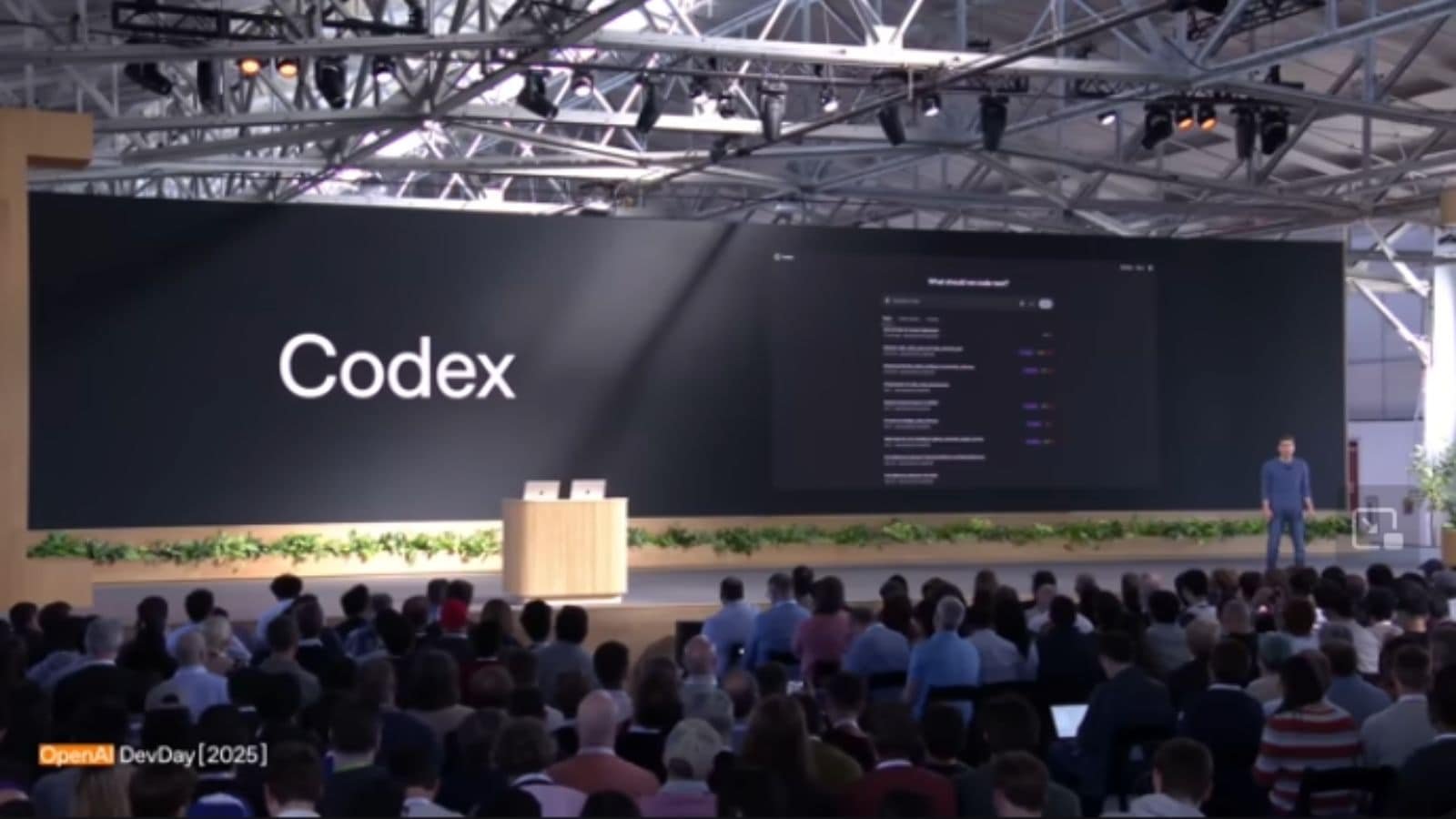OpenAI on Monday, October 6, not only showcased its latest developer-focused AI offerings but also revealed that it extensively uses AI to build those products.“Almost all new code written at OpenAI today is written by Codex users,” OpenAI CEO Sam Altman said at the AI startup’s third edition of its annual developer event, where it also announced new upgrades to its cloud-based, AI agent-driven coding tool called Codex.
First previewed in May this year, Codex is now generally available to paying users worldwide. The coding tool has also been upgraded with new admin features and Slack integration. Users can further embed the open-source AI coding agent in Codex CLI into their own apps, tools, and workflows without any extra tuning, the company said in a blog post.Story continues below this ad
The broader rollout of Codex comes as an increasing number of software engineers and developers turn to AI tools to generate code. A recent survey of 49,000 developers by Stack Overflow found that a whopping 80 per cent said they now use AI tools as part of their workflow. However, concerns over accuracy and low-quality code have eroded user trust. Only 29 per cent of respondents, down from 40 per cent, said that they trust AI-generated code.
Even so, OpenAI said that daily usage of Codex has grown by more than 10x since early August. GPT-5-Codex, the AI model powering Codex, has generated over 40 trillion tokens in only three weeks. Speaking onstage at OpenAI Dev Day 2025, Altman said that engineers at the company complete 70 per cent more pull requests (PRs) each week using Codex.
“And nearly every OpenAI PR goes through a Codex review. From that, people get more depth than they’d expect, even from a senior engineer,” he added. “It’s difficult to overstate how important Codex has been to our team’s ability to ship new products,” said Steven Heidel, a member of OpenAI’s technical staff.
He further said that the startup’s new drag-and-drop Agent Builder was developed in under six weeks “thanks to Codex writing 80 per cent of the PRs.”Story continues below this ad
Besides OpenAI, other companies such as Cisco, Instacart, Duolingo, Rakuten, and Vanta are also using Codex for various coding-related tasks. For instance, OpenAI said that Cisco engineers were able to speed up review times of complex pull requests by 50 per cent using Codex.
New Codex improvements
ChatGPT admins are now empowered to edit or delete Codex cloud environments in their workspace. They can take safety measures such as defining overrides and monitoring actions taken by the AI coding agent. OpenAI has also developed new analytics dashboards to enable admins to track and review the quality of code generated using Codex.
With the new Codex SDK, developers can integrate the same AI agent that powers Codex CLI into their engineering workflows and apps with just a few lines of code. This integration will provide “structured outputs for parsing agent responses and built-in context management to resume sessions,” the company said.
“We’re also releasing a new GitHub Action to make it easy to integrate Codex into CI/CD pipelines,” it added.Story continues below this ad
How to use Codex in Slack?
First, developers need to configure the Slack app by taking the following steps:
– Ask your ChatGPT workspace admin to enable both Codex Cloud Tasks in workspace settings, and the “Codex for Slack” Connector in connector settings.– Install the Codex Slack app in your workspace by going to Codex settings. You might need approval from your Slack workspace admin to do this.– Add the AI coding agent by mentioning @Codex in a Slack channel or thread.
In order to kick off a task using Codex in Slack, follow these steps:
– Tag @Codex in a channel or thread with a message containing your prompt.– Codex will first acknowledge your message with 👀, then reply with the environment it chose. You can also specify the name of the environment by writing, “@Codex fix the above in openai/codex”.– Then, Codex will reply with a link to the completed task along with an answer to your message.From there, you can merge its changes, keep iterating, or pull the task to your computer to keep working locally.Story continues below this ad
The Slack integration and new Codex SDK is only available for developers subscribed to ChatGPT Plus, Pro, Business, Edu, and Enterprise plans. The new admin features are available for ChatGPT Business, Edu, and Enterprise subscribers.
In terms of data privacy, OpenAI said that tagging the coding tool on Slack will send the message and thread history to Codex so that it can understand the request and complete the task. ” Data handling follows OpenAI’s Privacy Policy, Terms of Use, and other applicable policies,” OpenAI said.
Furthermore, enterprise admins will have the ability to prevent Codex from sharing sensitive information from the coding environment on Slack by unchecking the box labelled Allow Codex Slack app to post answers on task completion” in ChatGPT workspace settings.

